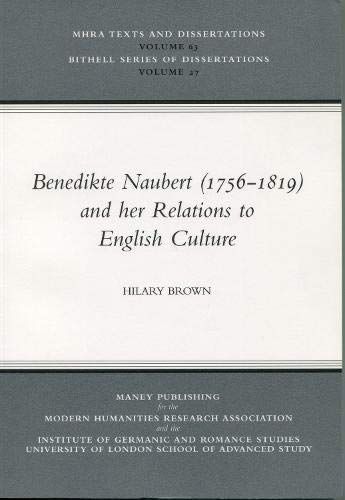
Benedikte Naubert (1756-1819) and Her Relations to English Culture
The eighteenth century saw the first significant phase of cultural interchange between Britain and Germany. This study examines the part played in this process by women writers, who were entering the literary world in large numbers for the first time. It asks whether women - as readers, translators, and authors - were particularly receptive to the work of other women, and whether a cross-cultural female literary tradition emerged during the period. The study offers a detailed case-study of the German writer Benedikte Naubert, now known for her collection of fairy-tales but also a prolific novelist. It looks first at Naubert's engagement with English literature, that is to say at her numerous translations of English novels, and at the ways in which Anglophilia influenced the production of her own fiction. It establishes how Naubert's interest in England and English literature was related to her position as a woman writer. It then examines the reception of her novels and stories in Britain, questioning how far the response to her texts can be linked to issues of gender. Naubert's work is compared throughout to that of other women writers, and the study thus sheds new light on the extent to which cross-cultural interchange influenced the development of women's writing in both countries.